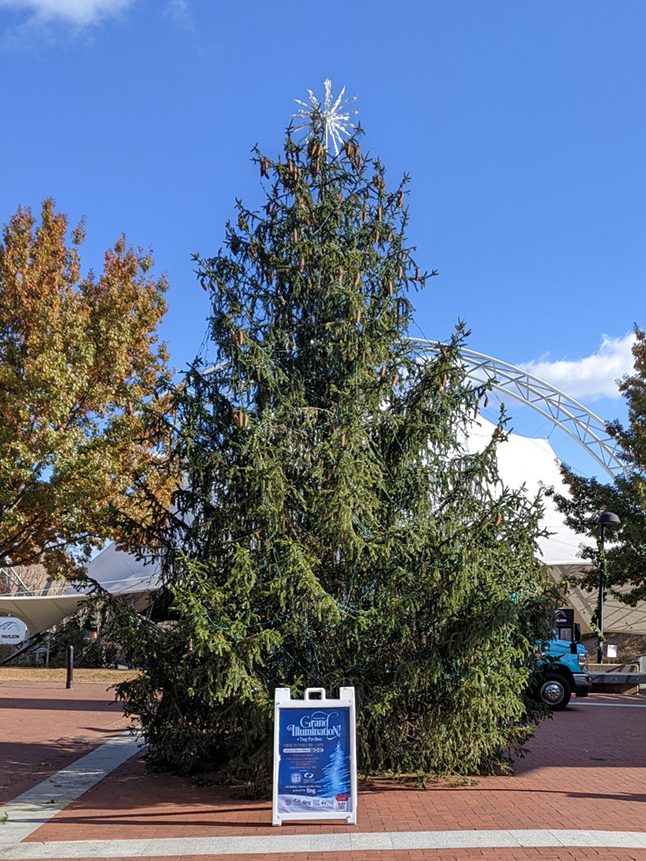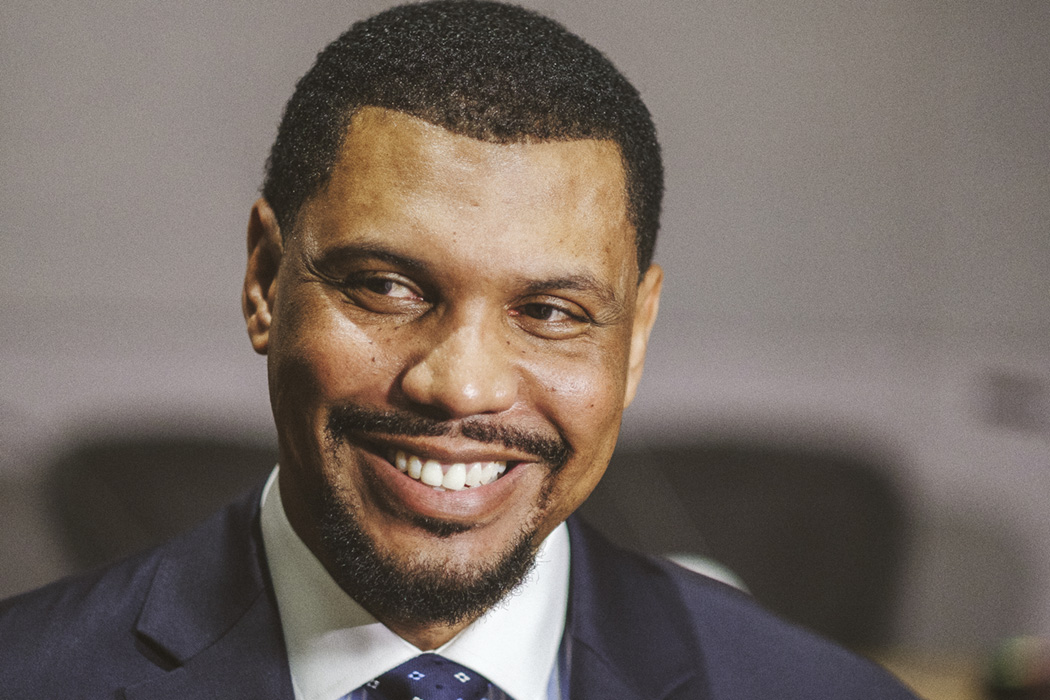Richardson sues city
Former Charlottesville city manager Tarron Richardson is suing a handful of top Charlottesville officials, alleging misbehavior around his departure in September 2020. The entire City Council, as well as individuals Mayor Nikuyah Walker, Councilor Heather Hill, City Attorney Lisa Robertson and former city attorney and Interim City Manager John Blair are listed as defendants.
Richardson says he was terminated unjustly in advance of a mutually agreed upon resignation date, that councilors disparaged him in public after his departure, and that the city attorney hampered his free speech by threatening a lawsuit over an op-ed he wanted to write in January 2021. He seeks a trial by jury and “significant money damages.”
A key element of the case is a C-VILLE interview with Richardson from the week of his departure. When asked about his relationship with City Council, Richardson named all the councilors he worked well with—everyone except Hill and Walker. (The lawsuit says Walker and Hill’s “chicanery and obstruction” encroached on Richardson’s professional responsibilities.) The story was published on September 23, 2020, and though Richardson was supposed to leave on September 30, the lawsuit says that after publication, Blair called Richardson in and relieved him of his duties, effective immediately. Richardson’s $205,000 severance pay was not affected by the early dismissal.
Richardson’s lawsuit also argues that Walker and Councilor Lloyd Snook disparaged him on Facebook after his departure. Walker wrote that she “never supported” Richardson; Snook wrote that “bringing back Dr. Richardson would mean that we were going to keep fighting battles of the past year rather than moving forward.” The lawsuit argues that these statements harmed Richardson’s reputation.
In January 2021, Richardson decided to write an op-ed that would “address the conduct and leadership failures of the City Council and Mayor Walker by name,” as well as describe what he felt was racist treatment during his tenure. Richardson notified Robertson that he planned to write the op-ed. She responded that the proposal would violate the non-disparagement clause he had signed, and that the city could sue for the return of his severance package if he moved forward with publication. Richardson says this was an unconstitutional breach of his free speech.
Richardson’s filing is the latest twist in a messy stretch for city government. Last month, former police chief RaShall Brackney filed a formal complaint against the city, threatening to sue for wrongful termination.—Ben Hitchcock
Oatmeal??
In a breathtaking rejection of convention, the citizens of Charlottesville voted to give this year’s Grand Illumination holiday tree a truly nonsensical moniker: The tree will be named Oatmeal.

Proposed names were submitted by the community, and thousands voted in an online poll to choose from among the finalists. Oatmeal took 35.6 percent of the 3,359 votes cast. This year’s runners-up included Chicken Tree, Treeyoncé Noels, Timotree Chalamet, and Snoop Logg.
The last three years, the trees have been named Spruce Bader Ginsburg, Spruce Springsteen, and Spruce Willis, respectively.
Some users on the Charlottesville Reddit forum have theorized that Oatmeal is a reference to the 1969 “Frosty the Snowman” holiday special—when the children are deciding what to name Frosty, one suggests Oatmeal. We can’t confirm the original intention of the suggestion, however, and have not ruled out the possibility that the name was put forward by a lover of hearty, wholesome breakfast grains.
The Grand Illumination event will take place outside the Ting Pavilion on Friday, December 3, from 5-8pm.
In brief
Did they even go here?
UVAToday, the university’s in-house media outlet, published a story congratulating law school alum Elizabeth Sines for her victory in Sines v. Kessler (more on p. 12). Sines was among the plaintiffs who successfully sued the white nationalists who organized the Unite the Right rally. What UVAToday conveniently forgot to mention, however, is that some of those organizers graduated from the school, too. Infamous white nationalists Richard Spencer and Jason Kessler were both Wahoos, as much as the school might wish they weren’t.
No Christmas tree, no Christmas tree
Pining for a lush tree in your living room this holiday season? Get cracking, because farms across the commonwealth are reporting Christmas tree shortages, thanks to a combination of pandemic-related supply chain issues and labor shortages. The situation has gotten intense: Little River Farm tells CBS19 that multiple people have broken in at night to steal trees. That will certainly land you on the naughty list.

Local churches win statewide service award
Two area churches shared Governor Ralph Northam’s 2021 Volunteerism and Community Service Award, the governor’s office announced last week. Mt. Zion First African Baptist Church and Church of the Incarnation were recognized for hosting regular COVID testing events over the last year. More than 8,000 individual tests have been conducted at the two sites.













